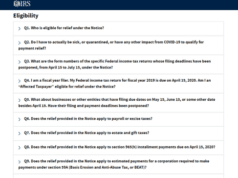
To say that almost every American has finance problems during the current economy would be a severe understatement. When almost half the country carries a large amount of credit card debt, unemployment is on the rise, wages remain stagnant, and inflation grows, it’s easy to see where these problems arise.
How did we all get so deep in debt? Can incurring ‘more’ debt in the form of a personal loan help someone get out of it? You’ll find answers to these questions and more below.
The Source of the Debt Problem
To understand why so many of us turn to personal loans to help solve our finance problems, we must first understand how these issues began. Here are some of the many reasons that we struggle under a burden of debt that we’ll struggle to repay:
Credit Score Stress
Our credit scores are central to our ability to economically function in our society. From purchasing phones through carriers to employment and even housing, you need a credit score to get through the door.
If employers can’t see your credit report, they have no frame of reference to know you’re reliable about making payments. If landlords have no credit score or debt-to-income ratio to pull from, they can’t tell if you’re trying to live beyond your means. This presents a risk to both parties, one they’d sooner avoid altogether.
You need credit to get anywhere, which requires taking out loans or having credit cards. This leaves people prey to…
Predatory Lending
Let’s face it: not every bank out there is on the consumer’s side. Many financial institutions are in it for as much money as they can wring out of you, and they don’t care if it ruins your life to do it. Some loan and credit card companies prey on those desperate for cash, offering them a solution to their finance problems.
Little do those who take the offer know that this solution comes with a hefty price tag of exorbitant interest rates and payments they won’t be able to maintain.
Living In a Bubble
The housing bubble’s burst led to an economic collapse that, in many ways, we’re only just now recovering from. Many financial experts have worried that student loans now exist in a similar bubble, with students by the million taking out loans they can never hope to repay in pursuit of a better education. Part of this comes as a result of…
Bad Financial Literacy
Financial literacy is not taught in schools. For generations, we’ve expected parents to teach children how to manage their finances. However, when many people’s parents are as bad with money or worse than they are, it’s hard to see how we expect things to improve by such familial teaching.
Unable to Expect the Unexpected
Of course, one of the largest causes of the debt burden in this country is the inability of those making below a certain amount to expect the unexpected. Every financial self-help guide you find online tells you to have three months of emergency savings stashed up. However, when the basic costs of living take up every single penny you have, an emergency fund may as well be a fund for a trip to Disneyland with how realistic it is to create.
This means that a single medical emergency or car breakdown can spiral into someone losing their home or job, or force them to take on greater debt to cover missing expenses.
Thankfully, even in such circumstances, there are solutions available.
What Is a Personal Loan?
A personal loan is a type of loan intended to finance personal expenses. It’s not tied to a business, a university, or a home like a mortgage. Rather, it comes from a banking institution like Chase, Bank of America, or Plenti, and can be used for a variety of purposes, such as:
Debt Consolidation
Debt consolidation is one of the most common personal loan uses. With this type of personal loan, a borrower receives money in order to pay off several credit cards or other debts at one time. Then, they only have to worry about paying down one debt as opposed to five or six others.
Lowering Interest Rates
This plays into consolidating debts, as the average interest rate for a retail store credit card (one of the most common types for people to carry) is around twenty-six percent. The average interest rate of a personal loan is much lower, which means that a borrower can pay off their principal debt much faster.
Building Your Credit Score
As we mentioned above, your credit score affects everything from your borrowing and spending power to your housing and employment. If your score is nonexistent or suffering, a personal loan can help you. By making consistent, on-time payments on your loan, you can push your credit score up. This can help you get better limits, interest rates, and housing opportunities.
Simplifying Due Dates
Imagine, if you will, that you have six credit cards. Imagine that all of these cards have variable balances, interest rates, and due dates. Now imagine trying to keep track of which card’s payment is due when, and it’s easy to see why people can end up missing payments. Some people invest in a debt consolidation loan to simplify their due dates, allowing them to get by with remembering just one as opposed to six or seven.
Financing Major Purchases
Last, we come to another common reason people invest in personal loans to solve finance problems; handling major purchases. If you’re getting married or adopting a child, that process can cost you thousands of dollars. A personal loan can help you cover some of those expenses so you don’t have to pay it all up-front.
In addition, if you have lots of medical bills or a sudden, major car emergency that you need to be fixed right now, a personal loan can absorb some of those expenses. This can reduce the initial burden on you in the event of a disaster.
Financing Without Collateral Damage
Most personal loans won’t require you to use something as collateral in the event of a default. Business loans, mortgages, and other types of credit could easily repossess your property or seize your assets as payment. Personal loans will not.
What Are the Drawbacks of a Personal Loan?
While there are many benefits to using a personal loan to help with your financial woes, it’s not without its costs. Here’s what you need to know about the potential drawbacks of using personal loans:
High Fees
Many personal loans have fees either baked into the amount loaned or taken from the amount lent. In addition, some lenders will charge you a fee if you pay off your balance before the expected payoff date. It should also go without saying that if you’re late or miss a payment, you can expect high fees and an increased interest rate as a result.
Make sure you read your terms and conditions thoroughly before you sign off on your loan.
Removes a Symptom, Not a Cause
If you got a personal loan as a means of debt consolidation, then that payment will free up your credit limits. However, if you’re a compulsive shopper or someone who struggles to manage money, having those cards free again could end up serving as a temptation to spend.
Naturally, if you spend to the credit card limits again, and still have your loan, you’ve only made your situation worse. Now you have twice the debt burden to pay down.
Before investing in a debt consolidation loan to help with your finance problems, make sure you speak with a debt counselor first to ensure you won’t end up worse than you started.
Payments Can Be Higher
Since the amounts given to borrowers are higher, it stands to reason that the payments will be higher than your average credit card. Loans are intended to be paid off within a certain amount of time, whereas minimum payments on a credit card often pay on interest, not principal. As a result, you’ll pay more per month, but you can count on your debt being paid off at the end of the loan’s term.
Some Interest Rates Are Higher
While most personal loans have lower interest rates than credit cards, for borrowers with poor credit, this may not be the case. In those cases, interest rates may be equal to or even higher than those offered by credit cards. Make sure to research the loan thoroughly before you sign.
Reviewing the Facts
Resolving your finance problems with a personal loan is a great option to have. It can let you consolidate debts, finance major purchases, and generally simplify your financial life. It can build your credit score, offer lower interest rates, and increase your chances of borrowing money later.
Despite the potential drawbacks, it’s an option well worth considering to help with your finances. However, if you need more financial tips, check out our blog daily for more money-related news!








